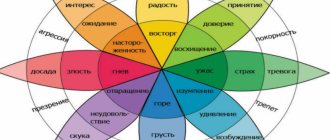Internet addiction is a global problem of our time, which millions of people have come face to face with. Internet addiction is not officially recognized as a mental disorder, but it is only a matter of time, some experts predict. The Internet does not provide full communication and does not satisfy the fundamental needs of the individual for self-affirmation and self-expression. It offers surrogates that seem very attractive and harmless. But the price for their use is high: a person addicted to the Internet does not have the energy and time for real life. This means that he misses opportunities to change her for the better. Alexey Tukmakov, a psychologist, author of books on psychology, and creator of the Libertonika system, spoke to the sb.by portal about why Internet addiction forms, who most often becomes its victim, and what steps are necessary to free oneself from it.
Signs of Internet addiction
The main sign of Internet addiction is that the Internet becomes a source of emotions. “Normally, a person receives stimuli that evoke emotions in interaction with real living people, and uses the Internet as a technical means of communication: for exchanging messages, searching for information, including operational information,”
explains the psychologist.
Signs of Internet addiction also include:
• a subjective feeling of craving for the Internet.
Anyone who is free from Internet addiction acts according to the following scheme: “there is an information request - open the necessary resource - receive the necessary information - close it.” The victim of addiction has an inner urge to open, look, read, and the process itself is addictive.
• virtual communication exceeds real one.
A person with an addiction communicates mainly on the Internet. Let’s say he chats with virtual interlocutors for at least an hour every day and, in total, only talks with real people for an hour and a half a week.
• significant time spent on the Internet, not related to work and searching for truly necessary information.
Having received an answer to a pressing question (weather forecasts for the coming days), a person continues to hang out on the Internet, absorbing absolutely useless information (scandals in show business).
aqua-rmnt.com
February 22, 2017
31292 views
Irina Salnikova Journalist, author of the blog “No Bullshit in the Head”, mother of two cartoons - a daughter and a son. I live easily, I am inspired by my dreams, I believe in myself. I value sincerity and a sense of humor in people.
- bezfigni.blogspot.ru
- facebook.com/profile.php?id=100012517327054
If someone had told me ten months ago that I would get rid of the habit of “hanging out” on the Internet, I would never have believed it. It seems that it was written on my forehead then that I was an Internet addict. I spent hours monitoring news feeds, indiscriminately surfing websites and blogs, and hanging out on video channels. And now I don’t read news on the Internet. At all. And I even check my Facebook profile at most once a day, and sometimes every other day.
I walked towards this reality through “I can’t” and “I must.” I lost my temper, was mistaken, deceived and beat myself up. But now, with almost a year of struggle for personal freedom under my belt, I can definitely say: anything is possible! Even freedom from Internet addiction.
The Omniscient Internet states that Internet addiction is a disorder that has physical and mental symptoms. However, it is not yet a disease according to medical criteria. I would argue with the last statement. From my own experience, I will say that Internet addiction is a real illness, like alcoholism or drug addiction. Moreover, I am sure that soon it will be included in the classification of diseases and will be treated. Perhaps they will even invent a vaccine. What if all this already exists? Alas... Judging by the number of people everywhere and around the clock focused exclusively on web surfing, there is no vaccine yet.
Of all the happy wi-fi users with their noses buried in mobile phones and tablets, some are, of course, busy. Well, or at least reading a book. The rest are killing time. They sit on social networks, chat, play games, watch movies, click on links, without remembering what they read. And the worst thing is that almost none of them will clearly answer the questions: “Why do you need this? How do you benefit?”
I also had this habit of surfing the Internet aimlessly. I went to one site, followed the link to another, then found myself on the twenty-fifth... Sometimes, regaining consciousness in the midst of web surfing, I admitted to myself that I couldn’t remember why I ended up on this particular resource and what exactly was there for me , need to. And at this time, life was in full swing offline: the soup on the stove was running away, the child was asking to play with it for an hour, an unread book was gathering dust, my mother was waiting for my call...
I was most addicted to the news. I was deceived by the firm conviction that I needed to read the news “for work.” Although my main job at that time was my newborn son, and the need for detailed monitoring of the information picture of the day was a thing of the past, I still disappeared on news sites. When I woke up, the first thing I did was check the popular news feed. During the day, I opened the news every half hour to follow how the events of a particular news story were developing. In the evenings, stealing time from sleep, she did not change her custom and greedily read everything that pleased or saddened the inhabitants of the Earth the past day.
“But I always have something to discuss with my husband at dinner,” I wrote myself a dubious bonus. Well, by God, you can’t talk to him about baby poop! It’s as if I forgot that before we always found topics for conversation without any problems.
The worst thing is that in the depths of my soul I realized the disastrous nature of what was happening. It was difficult not to notice the intermediate results of addiction - laziness, procrastination, stagnation. Under their oppression, I successfully buried my dreams and plans. I didn’t write it myself, but read other texts. She did not create her own reality, but immersed herself in someone else’s. A sort of modern version of Oblomov with the Internet instead of a sofa. The obvious senselessness of the protracted killing of time was even more depressing.
What really new did I learn from the message about Angelina Jolie's breasts? How is the news about bombings in Syria useful for my reality? What did information about intrigues in the elections of a foreign president change in my life? Nothing. I filled the void with emptiness and only fell asleep more deeply. Like Oblomov.
And I would still be asleep, but it turned out like the saying goes. There would be no happiness, but misfortune would help. One day, while having breakfast and, as usual, reading the news, I unsuccessfully reached out for a mug. A moment later, the laptop keyboard was filled with fragrant cocoa. While I was liquidating the consequences of the accident and coming up with excuses for my husband, whose laptop I had ruined, it suddenly dawned on me. It became obvious that I was seriously damaged in my mind, since I couldn’t even eat without news accompaniment. “Irina, we need to do something!” — a desperate cry broke out from somewhere in the depths of consciousness.
Now I know what that scream was. It was my brain, completely zombified by Internet news, that nevertheless found reserves to protect itself from... me. I am seriously convinced that it was no coincidence that he sent the wrong command to his hand.
This incident began my great exodus from empty news into the Internet void. I called it the thorny path of sincere confessions to myself.
First confession: I have an Internet addiction
I literally stood in front of the mirror and, looking into the eyes of the reflection, repented. I admitted that I suffer from that type of Internet addiction that prompts me to endlessly search for information on the Internet. I didn’t play online games, didn’t register on dating sites, didn’t argue on forums or chat in chat rooms, didn’t participate in online auctions. But she overloaded herself with information, endlessly reading the news. I had to admit that this habit pleases my ego, supposedly lifting me to the crest of an information wave and giving me the illusion of knowing everything. Web surfing also replaced my lack of communication: after all, maternity leave has its own characteristics and limitations in terms of communication.
Second Confession: Addiction took a toll on me.
And we're not talking about laptop repair costs here. The main damage was caused to my psychological health, wounded by the context of the news. Traditionally, it is 90% negative. Increased anxiety, moral devastation, insomnia - I carried this ballast in addition to my unhealthy hobby. Irreversible damage was done to the time allotted to me: while I was online, life passed me by. How many of its important moments are missed? What did I deprive myself of to satisfy the inner monster that feeds on Internet news?
Third confession: you won’t be able to get rid of Internet bondage right away
The surprises began as soon as I decided “from tomorrow morning” to read the news once a day! And although you can’t breathe before you die, the evening before my renunciation I surfed with renewed energy. A week has passed. I noticed that “one time” turns into an infinite number. So I look at the news during the day while the child is sleeping. In the evening, I again look with one eye at “what is happening in the world.” Waking up in the morning, I decide that the sanctioned “once” has come now. So I slipped into the previous mode of Internet wakefulness, “in the middle of a noisy ball by chance” finding myself reading the news.
After several such attempts, I realized with horror that it would not be possible to get rid of Internet addiction through half measures. The patient in my face clearly needed a scalpel and amputation, and not a band-aid with “green stuff”. And I decided! I made up my mind the way steamed bathhouse attendants jump into a fluffy snowdrift. Without looking back or doubting. Because if you start to doubt, you will never jump. My “answer to Chamberlain” was as follows: from now on, I will stop reading news on the Internet altogether! Another promise became insurance against failure: I will not only stop reading the news, but I will stop using the Internet altogether! I set a period of one month for the habit to form.
Confession 4: Leaving your comfort zone is scary.
As soon as I made the choice to completely cut myself off from the World Wide Web, fear set in. He whispered that voluntarily losing the Internet in the age of spaceships and robotic vacuum cleaners is the culmination of madness. Fear scared me: you’ll miss all the trends. Fear asked: what will you do with your free time? Fear persuaded: open the browser, no one will find out. When the inner traitor realized that I was not joking, he began calling me names. He mocked my integrity, my reluctance to break my word.
My withdrawal, excuse the drug addict slang, was terrible. The Internet was not enough physically and mentally. I confess, during the first month I almost failed the mission ten times. And I would have failed if my husband had not supported me. He was enthusiastic about the “experiment”, listened sympathetically to my confessions on the topic, and praised me for every new day without the network. And I even looked for the necessary phone numbers on the Internet if I needed to call somewhere. Once again, I was convinced that close and dear people are our fortress, before which the most fierce enemy retreats.
Fifth confession: fear is replaced by liberation
About a month later I suddenly felt better. The network was released. It turned out to be an amazing feeling: not only did I not know what was going on in the world, but I also didn’t lose anything from it. The news disappeared from my reality, and with it worries, empty talk and worries about someone else’s life. And yes, I kept up with life, because news began to come to me in a different way. I’ll accidentally hear something on the radio, something my husband will tell me, something my friends will tell me.
It turned out that I now have an ocean of free time, the lack of which I used to love to complain about. I started reading a lot again, walking, going to the gym, and spending more time with my children. Insomnia and anxiety disappeared. In a month, I managed to redo things that had been waiting in the wings for years - I sorted out digital photo archives and printed the necessary photographs, for example. She also immersed herself in her own creativity and began writing a book. My soul blossomed petal by petal, like an indoor flower that was suddenly taken out of a musty room into the fresh air.
Sixth confession: having passed the test, be on alert - the enemy is not asleep!
At the beginning of April, it will be exactly one year since I chose freedom from online news. Of course, I didn’t take this good initiative to the point of absurdity and deprived myself of the pleasure of becoming an Internet hermit. I don't like extremes. But even if I did that, you wouldn’t be reading this text.
However, you have to be completely honest. Halfway through the recovery process, I had another breakdown. It did not concern Internet news itself, but was associated with activity on the social network. I started a blog and to promote it I decided to get a Facebook profile. Before this, I hadn’t used social networks for eight years. And as you probably already guessed, Facebook almost pulled me into the Internet quagmire again. When I realized that it was eating up my time just like the news before, I simply deleted the mobile application from my phone. After the experience of refusing news, it was much easier for me to do this. Now I appear on Facebook only when necessary: to post a link to my blog or a new article, to take part in online courses, to like a heart-warming post from my friend’s feed.
I like my day today. I'm happy and free. I am sure that I will not fall apart and will continue to live here and now without the “leash” of the Internet. I almost forgot what it’s like when the “leash” tightens and forces me to run where I don’t want to go. What is your relationship with the Internet? Do you have the illusion that you are in control of yourself? Or have you already realized that you are losing the battle of the network, as I once realized?
Self-development #Internet #Awareness #social networks
Causes of Internet addiction
Internet addiction develops among those who cannot satisfy important psychological needs in the real world.
According to the psychologist, people go to the Internet mainly for: • communication
(chat on social networks, dating sites);
• self-affirmation
(multiplayer games);
• self-expression
(keeping a blog “about nothing”, posting mediocre quality photos on your account, etc.).
On the Internet you can pretend to be anyone, but in real communication a person shows himself as he is. “If you are insecure, narrow-minded and uninteresting, childish and pretentious, all this will come to light. And on the Internet, it’s easy to hide your shortcomings and dark sides – if not completely, then to a large extent. Nobody sees the real person. Such communication does not satisfy because it does not provide full recognition,”
– says Alexey Tukmakov.
Self-affirmation on the Internet is also a bad idea. In the real world, asserting yourself comes with challenges. For example, I went to the boxing section and got hit in the face with a glove and was knocked out. Unpleasant. You’re thinking about conquering Everest, but you could break your arms and legs, or even die. And on the Internet you conquer galaxies like you’re gnawing on seeds, you deal with virtual enemies with the help of virtual weapons - and you feel cool. Without effort, difficulty and risk.
pexels.com
In the real world, success in self-expression requires a lot of effort. “To paint a picture, write a book, implement a social project, you have to try. Invent, do something really valuable, show results. And it’s not a fact that you will receive recognition. What about the Internet? I posted the photo on Instagram, got likes, and was happy. Only this photo has no value, your friends will forget it as soon as they like it (because you like their posts). Likes mean nothing and give no real satisfaction. They cannot be compared, for example, with the applause that a soloist hears after performing on stage,”
- says the psychologist.
What is the disadvantage of virtual communication?
Many fans of virtual communication say: “There are no interesting people around me, but the Internet is full of them. I read their posts, leave comments, get acquainted with other people’s opinions and express my own, receive feedback and support from those with whom I will never cross paths in real life. In short, I gain my mind and clear my soul. What harm?! One continuous benefit!
sonar2050.org
Psychologist Alexey Tukmakov points out the weaknesses of this position: “Internet communication is a fiction, it is impossible to get enough of it. When people communicate directly, they smell each other. For the brain, it is smell that is a signal and indicator that communication is real. Reality smells, but the picture (on a monitor, TV, or in a movie theater) does not. A person can “communicate” on the Internet for dozens of hours, but still will not feel full, because there is no smell. And when a person actually meets his interlocutor and spends a couple of hours talking, this communication will be enough for him for a week.”
At the same time, the expert draws attention to the fact that supporters of Internet communication usually firmly defend their point of view: “If a person tells himself that he is “interested” and “takes his mind off”, he will continue to do this. There is no need for him to try other options. An alcoholic relaxes with the help of alcohol and does not look for other methods. It’s the same with virtual communication: if a person wants to surf the Internet, well, let him sit, this is his life and his destiny.”
Have you come to the conclusion that there is too much virtual communication in your life? Then, at least for a month, give up the Internet and interact with people in physical reality. “Meet the same online acquaintances if you live in the same city. Communicate a couple of times a week for one and a half to two hours - and you will certainly feel that real communication is satiating. But online communication will lose its attractiveness by ninety percent,”
– says Alexey Tukmakov.
pexels.com
Orthodox communities on social networks
How good it is that after so many years of persecution of the Church, the treasures of patristic sayings have become available. Modern technologies make it possible to illustrate them, design them very beautifully and publish them on social media. networks. The emergence of Orthodox communities on social networks has made it possible to share this with more brothers and sisters. Currently, we have an abundance of similar Orthodox groups, posts (entries) in which one another is more interesting and attractive. Outwardly, all this may seem wonderful. But let us remember the words of Isaac the Syrian: “Without measure, even what is considered beautiful turns into harm.”
If we tempt our brothers and sisters in Christ by developing an Internet addiction, are we doing any good?
Undoubtedly, whether to sit in front of the monitor or not, to like a post or not depends on the “liker” himself. But wasn’t it about us (those who post numerous posts) that the Savior said, “ It is impossible ?
During Lent in 2014, one very respected Orthodox community on social media did something very wise. Administrators posted posts only on holidays; on other days the group was not updated. I think this is an example for everyone.
Consequences of Internet addiction
“A person with Internet addiction, figuratively speaking, moves from physical reality to an illusory virtual world.
Into a world that does not exist, which exists only in the imagination. As a result, a person interacts not with physical reality (other people, nature, live musical sound or a picture), but with an information machine (computer or smartphone), which, in essence, controls his perception and feelings,” explains Alexey Tukmakov.
The spread of Internet addiction contributes to the separation of people, the so-called. atomization. Energy that could be used for socially useful purposes is wasted. For example, in the city there is an old park, beautiful, but abandoned. There are no budgetary funds allocated for it. People can organize and put the park in order on their own. Anyone who has a hand in improving the park will be warmed by the feeling that he is involved in a good cause. Another example is volunteering. When a person helps those in need, he feels stronger and more important. And if instead he plays computer tanks, then he will waste his time and energy in vain.
Thus, Internet addiction negatively affects both the individual and society as a whole. “People suffer from loneliness. Some people drink themselves to death, others commit suicide. The energy of a mass of Internet-addicted individuals is spent on achieving fictitious virtual goals. Of course, society loses from this,”
- says the expert.
And he adds: “However, from the point of view of social control, Internet addiction is good because a person who is immersed in the virtual world does not create any problems in physical reality.”
pexels.com
Phone addiction: let's summarize
The smartphone did not come into your life to destroy your abilities and time. Use it as a tool to achieve your goals. Assess whether your phone is keeping you from being happy. There is nothing wrong with wanting to look for answers to questions on the Internet. But quick answers often prevent our brains from developing and analyzing information. Spend more time outdoors and with friends. The smartphone will not get away from you. Use gadgets wisely, then you won’t be dependent on your phone and the Internet.
With the problem of telephone or any other addiction, you can also contact a psychologist. Experienced and competent specialists will definitely help you!
How to avoid the negative influence of the Internet
There is absolutely no need to cross out the Internet from your life - it has many useful opportunities.
It’s just important to know how not to succumb to negative influences and avoid the dangers of modern technologies. According to Alexey Tukmakov, for this two conditions must be met: • “First, provide yourself with reasons to experience physical reality: get involved in living art (attend concerts, museums, theaters), engage in creativity (paint, play music), devote time sports, find a real cause that feels important (for some this is regular volunteering), enjoy interesting communication with people and contact with nature.
pexels.com
• Secondly, use the Internet only when you cannot do without it (e-mail, current weather information, booking tickets and hotels). You can find out news from paper newspapers, write out two - pro-government and opposition, read and compare. Listen to your favorite music without going to social networks - download it to your computer and smartphone. In a word, if there is a fear of becoming addicted, there is only one principle – use less internet.”
How to Stop Playing Games and Start Learning
The problem of Internet addiction becomes particularly important when it becomes an obstacle to the acquisition of knowledge and quality education.
Computer games are great as long as they don’t interfere with your studies and communication with loved ones
Sometimes behind games and other entertainment on the Internet, it may not even be procrastination, but ordinary human fear.
Before important tests, exams or sessions, you always feel like you don’t know anything, which is why you’re afraid to even start preparing.
In such situations, schoolchildren and students often begin to disappear on the Internet, trying to drive away thoughts about upcoming fateful tests.
There is a good way that will help you make an easier transition from constantly being on the Internet to studying. Today there are many sites that offer learning in an interactive way.
Thus, you can learn a foreign language by listening to your favorite songs and watching movies, memorizing words in a playful way, thereby earning yourself points for further use of the site.
For the humanities and exact sciences, you can find video lectures freely available on the Internet in which seemingly complex material is sorted out into shelves. To study, for example, geography, sites are suitable where you need to remember the position of countries and other territories on the map, their capitals and flags.
How to overcome internet addiction
Psychologist Alexey Tukmakov claims that to overcome Internet addiction it is important to follow the following recommendations:
1. Completely give up the Internet for 3-6 weeks.
“The first step is the “tie.”
It’s like with alcohol and nicotine - you need to completely stop doing what causes addiction: drinking, smoking, using the Internet,” explains the specialist.
According to some data, a stable habit is formed in 21 days, according to others – in 42 days. “Weaning off” takes the same amount of time – from 3 to 6 weeks. If possible, take a vacation during this period so that you do not need to use the Internet for work. For calls, purchase a push-button telephone.
i2.wp.com
2. Provide reasons for experiences in physical reality
(see paragraph “How to enjoy the benefits of the Internet and avoid negative influences”).
“This is the key point,
” says the psychologist.
– If you ignore it, the person will definitely return to Internet addiction.
He is used to satisfying important needs using the Internet and, if he does not find other ways, he will experience severe discomfort – frustration.” 3. Find secondary benefits from using the Internet.
Secondary benefit is some kind of implicit (not realized by a person), but significant need. The habit that allows you to satisfy it becomes extremely stable. It is difficult to identify secondary benefits on your own; it is advisable to contact a specialist. It will help you realize these benefits and teach you how to satisfy psychological needs in adequate ways.
pexels.com
“For clarity, I’ll give an example from another area: smoking. It seems that a smoking person satisfies the need for nicotine to which his body is accustomed, right? However, at the same time, smoking is a reason for socializing in the smoking room, helps regulate emotions, and makes you feel like an adult (relevant for teenagers). If these three needs are not realized by the smoker, then they are secondary benefits for him. And contribute to maintaining the smoking habit. To get rid of it, you first need to learn how to satisfy these needs in other ways. Then quit smoking - the physiological dependence on nicotine will go away in about a month. Since other needs are satisfied, the person will be able to live without cigarettes.”
– says Alexey Tukmakov.
Regarding Internet addiction, the primary benefits, as noted above, are communication, self-affirmation, and self-expression. A person can be aware of these moments.
pexels.com
Secondary Benefits of Internet Addiction
most often the following:
• the Internet provides incentives for experiences (i.e. the Internet is a source of emotions);
• you can avoid the efforts that self-affirmation and self-expression in reality require;• you can hide your real self by creating a virtual identity (relevant for insecure people without hobbies and interests);
• you can avoid contact with real people (relevant for those who are afraid of people).
After realizing the secondary benefits, it is easy to understand what is required to develop them:
• create incentives for experiences in real life (art, nature, sports);
• get used to the effort of simply doing something in reality;• discover your interests, get carried away with something (any person who has finished school is familiar with many areas of science, art, creativity - something is sure to evoke a response);
• communicate with real people, eliminating your fear of them.
pexels.com
Treatment
For people who turn to specialists for help, there are a number of recommendations, adherence to which can alleviate their condition and gradually reduce the need for virtual communication to nothing.
So, to overcome addiction to social networks, you need to:
- set clear time limits for visiting your Internet pages, gradually narrowing them;
- minimize virtual communication - clear your friends list, write messages only on business, leave uninteresting groups, etc.;
- stop informing the virtual community about everything that happens in life - the fewer new posts, photos, likes and comments there are, the more boring the time spent online will become;
- disable the browser’s function for loading images - if there are no bright, interesting illustrations on the pages of social networks, they will quickly lose their attractiveness;
- draw up a daily plan of tasks that must be completed, thereby reducing free time for visiting social networks;
- find an interesting hobby to which you can focus all your attention;
- give up the habit of eating at the computer or with the phone in hand;
- stop ignoring meetings with friends, visiting theaters, exhibitions and concerts - the more pleasant experiences you have in life, the less you will want to look for them on the Internet.
At the same time, you can involve friends and relatives in solving this problem, asking them to additionally monitor the presence of an addicted person on social networks and even introducing some kind of sanctions for neglecting the established restrictions on communication on the network.
Digital Detox method has also proven itself well - a complete renunciation of the Internet and gadgets for a certain period of time, for example, on vacation or a business trip.
How to help another person get rid of Internet addiction
All you can do is try to awaken a loved one’s interest in something other than the Internet, and actively help with this. For example, get them interested in sports - running together in the morning, hiking, something else. “Please note: do it together, and not just give the instruction: “Quit the Internet and run in the morning.”
It is important for a dependent person to feel supported, to feel that someone really needs him and that he is given time and attention,” the psychologist emphasizes.
PEXELS.COM
Another option is to help a person get involved in an exciting process. “Do you know that he’s thinking about taking up painting? Give him a subscription to a painting course for two months. But precisely for the course where there will be real communication with passionate people who may have an influence on him. Just handing over a cool set of expensive paints is a bad idea. He will put them on the shelf and go back to the Internet. To overcome addiction, live contact with living people is important,”
– emphasizes Alexey Tukmakov.
If your efforts get you nowhere, leave the person alone. It is impossible to free someone from addiction who does not want it themselves. Even if you want to, you cannot cure an alcoholic by force; it’s the same story with Internet addiction. Except that it’s less dangerous: it doesn’t make your liver fall off. It will be possible to help only if the initial impulse arose in the dependent person himself. And attempts to stop addictive behavior are pointless: a person will return to it as soon as external restrictions no longer hold him back. Therefore, let your loved one live as he wants. And you go about your life.
What are the advantages of a person free from Internet addiction?
“By and large, there is one advantage.
Such a person lives in reality and real opportunities open up before him. For example, make money, meet a loved one, implement a creative project, strengthen your body. You can’t do any of this on the Internet,” says Alexey Tukmakov.
For an addicted person, the Internet is a prison into which he voluntarily imprisoned himself. And the advantage of someone who does not suffer from Internet addiction is the same as that of a person who is not in prison. He's just free.
Basic symptoms
An alarm bell that indicates the presence of Internet addiction is being online for 5 hours or more. This form of addiction affects from 2% to 10% of the population of the entire globe, according to various sources. Not only teenagers who grew up in the Internet era can suffer from this scourge, but also to a much greater extent young and middle-aged people who have seized upon the desired alternative replacement for an unsatisfactory reality.
There are common symptoms that indicate a shift in priorities in favor of virtuality:
- the desire to always be online, withdrawal symptoms;
- irritability when there is no Internet for a long time;
- neglect of appearance;
- sleep disorder;
- irregular nutrition, lack of it or overeating;
- conflicts with others;
- attention disorder;
- willingness to invest money on the Internet;
- refusal of entertainment and communication in real life.











